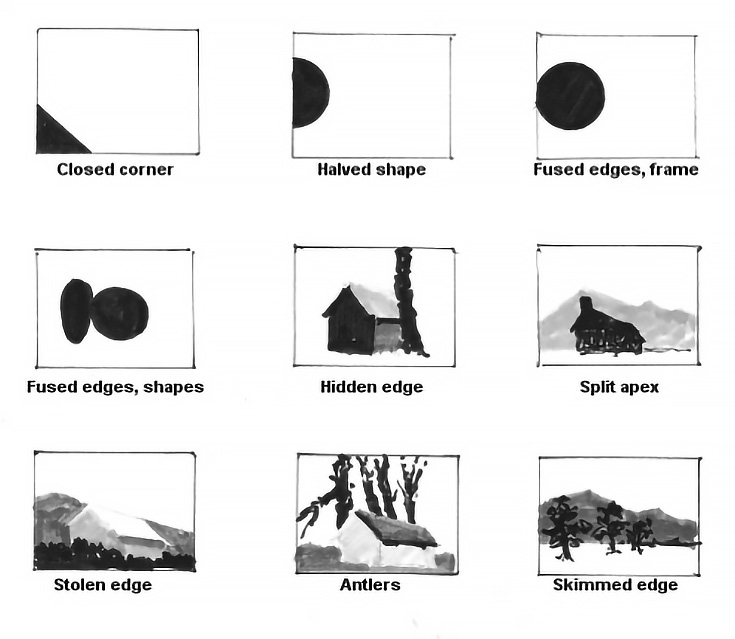Feeling somewhat artistically chloroformed by the ceaseless stream of self inflicted post processing tutorials viewed these last weeks, the serendipitous discovery of the
E-Book ( More Than A Rock ) authored by
Guy Tal, came at the perfect time. Along with millions of others, I derive much satisfaction from my photography although I doubt I would ever use the term 'photographer', amateur or otherwise to classify myself. It has always seemed so much more complex to me than that, too restrictive. Reading many of Guy's perspectives generated "Eureka" moments, perhaps in a sense releasing me from " lone voice in the wilderness" syndrome.
Contrary to many, my photographic preference is not a social one. I neither need nor wish to post my images on social networks for either promotional or affirmational purposes. Mine is more a solitary pursuit, a journey along a self generated continuum, and there are many ports along that continuum where I stop to take sustenance. I'm not denying that it is both heartening and uplifting to receive affirmation, just that, in this moment of time, it is not my focus. I enjoy most of the interactions on my social networks and believe it's important to contribute where possible, and to give as much as you take, essentially a "quid pro quo" system. Together we learn from each other. However I dont want to develop a 'group mindset' where I tailor my images to suit a generic criteria or photograph only 'popular' subjects. I want to pursue my own agenda.
Guy refers to it as: ".... the struggle between meaningful and beautiful, between significant
and inconsequential, between unique and repetitive. Too many surrender
to the temptation of repeating the same clichés already articulated by others..."
Guy appears to be a kindred spirit, obviously a man who loves the natural world and
gains soul sustenance by giving witness to its incomparable beauty and
magnificence. But more importantly, he is reflective, with a social conscience, and therefore others can learn from his observations. He believes there should be a clear distinction between
representational and creative work and rejoices in the subjective irresistibility of certain locations, seemingly preferring the isolated or at times, inhospitable.
So
much of what Guy espouses resonated with me that I won't endeavour to
paraphrase. His own words say it so much better than I could ever hope
to do.
"........There
is more at stake than minor prejudice here. All art is manipulation. Photoshop is a tool –
a noun, not a verb. And lumping all products of a camera into one category, to
be judged by the same criteria, is as silly as bundling together
Impressionistic masterpieces with engineering drafts or comic strips.
Of all
human pursuits, art is perhaps the most subjective. From the things that
motivate someone to create it in the first place, through their choice of
tools, composition, style and presentation, everything about art relies on
subjective choices made by an artist in accordance with their own imagination
and skill, distinguishing their work from that of others.
Other than the obvious aesthetic implications,
the degree of subjectivity in one’s work also determines the audience for it.
The more factual and readily understood an image is, the larger its potential
audience pool. Conversely, the larger the audience, the lower the common
denominator, and the more restricted the artist is in expressing their own
creative voice. This is an important consideration. If you are driven primarily
by sales, accolades or popularity, and want to maximize your audience, the less
likely it is that your work will communicate complex personal narratives. And,
the more personal and expressive your work, the smaller your potential audience
may be. This is not to say that one is “better” than the other, just that such
choices carry implications beyond personal conviction.
Finding
satisfaction in one’s work also is directly derived from the degree of
subjectivity expressed. The more personal and complex your message, the fewer
people are likely to relate to it. Accept it and don’t try to please everyone.
The alternative is to compromise your message and/or artistic integrity. Understanding
the implications and sacrifices of your chosen degree of subjectivity is
important. Much as many would like their work to be both objective and creative
art, the two are incompatible in many ways. Make your choice and accept the
consequences. For myself, I yearn for the day when photography reaches the
degree of maturity where its consumers know to draw a clear distinction between
representational and creative work, as they do with writing....."
Further on in the book, Guy refers to Paul Strand, an artist and humanitarian describing him as:
" .... a photographer of immense insight. He was the preeminent “straight” photographer of his day, at a time when stylized pictorial work was the norm....."
Prompted to learn more, I thoroughly enjoyed watching Part 1/ 6 videos of the documentary "Strand, Under the Dark Cloth" narrated by John Walker and look forward to the next 5. So much to learn.




